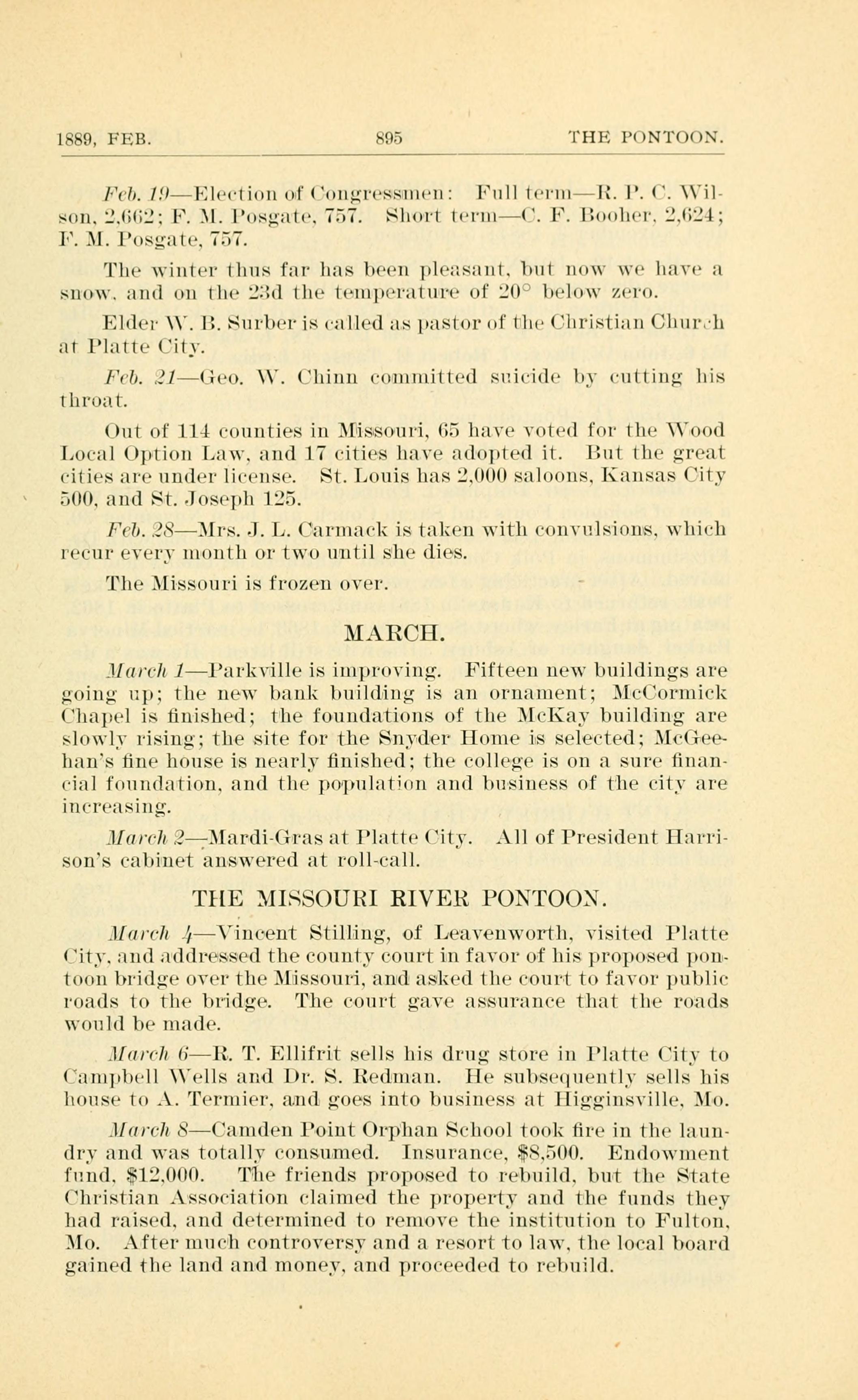Annals of Platte County, Missouri - Paxton
[previous page] [next page]

[previous page] [next page]
1889, FEB. 895 THE PONTOON Feb. 19 - Election of Congressmen: Full term - R. P. C. Wilson, 2,662 F. M. Posgate, 757 Short term - C. F. Booher, 2,624 F. M. Posgage, 757 Weather - The winter thus far has been pleasant, but now we have snow, and on the 23d the temperature of 20 degrees below zero. Elder W. B. Surber is called as pastor of the Christian Church at Platte City. Feb. 21 - Geo. W. Chinn committed suicide by cutting his throat. Out of 114 counties in Missouri, 65 have voted for the Wood Local Option Law, and 17 cities have adopted it. But the great cities are under license. St. Louis has 2,000 saloons, Kansas City 500, and St. Joseph 125. Feb. 28 - Mrs. J. L. Carmack is taken with convulsions, which recur every month or two until she dies. The Missouri river is froze over. MARCH March 1 - Parkville is improving. Fifteen new buildings are going up; the new bank building is an ornament; McCormick Chapel is finished; the foundations of the McKay building are slowly rising; the site for the Snyder Home is selected; McGeehan's fine house is nearly finished; the college is on a sure financial foundation, and the population and business of the city are increasing. March 2 - Mardi-Gras at Platte City. All of President Harrison's cabinet answered at roll-call. THE MISSOURI RIVER PONTOON March 4 - Vincent Stilling, of Leavenworth, visited Platte City, and addressed the county court in favor of his proposed pontoon bridge over the Missouri, and asked the court to favor public roads to the bridge. The court gave assurance that the roads would be made. March 6 - R. T. Ellifrit sells his drug store in Platte City to Campbell Wells and Dr. S. Redman. He subsequently sells his house to A. Termier, and goes into business at Higginsville, Mo. March 8 - Campden Point Orphan School took fire in the laundry and was totally consumed. Insurance, $8,500. Endowment fund $12,000. The friends proposed to rebuild, but the State Christian Association claimed the property and the funds they had raised, and determined to remove the institution to Fulton, Mo. After much controversy and a resort to law, the local board gained the land and money, and proceeded to rebuild.